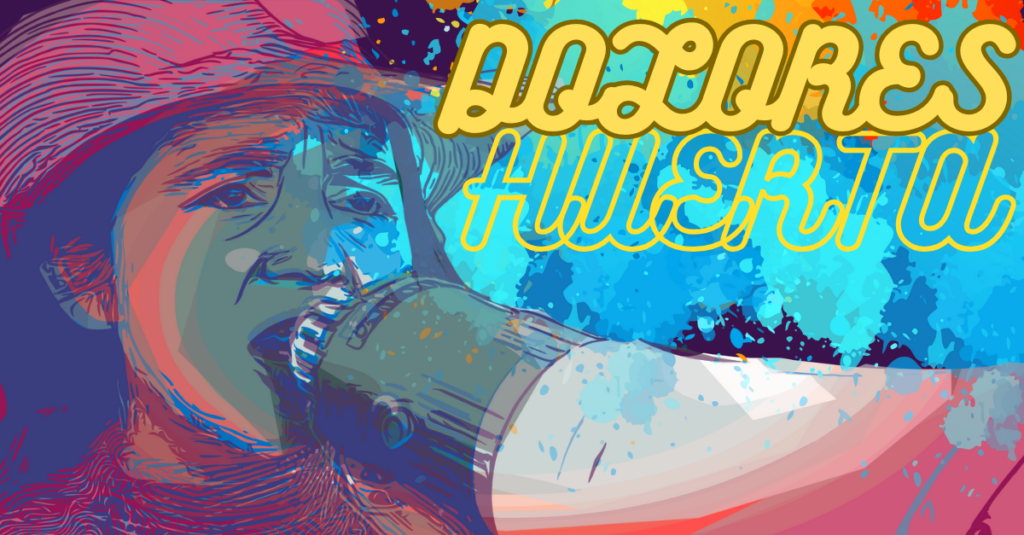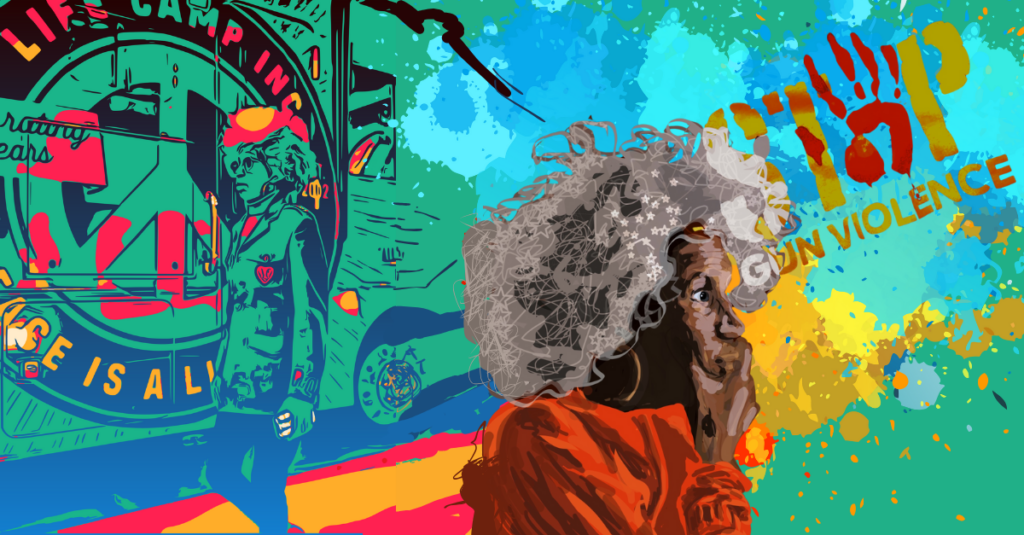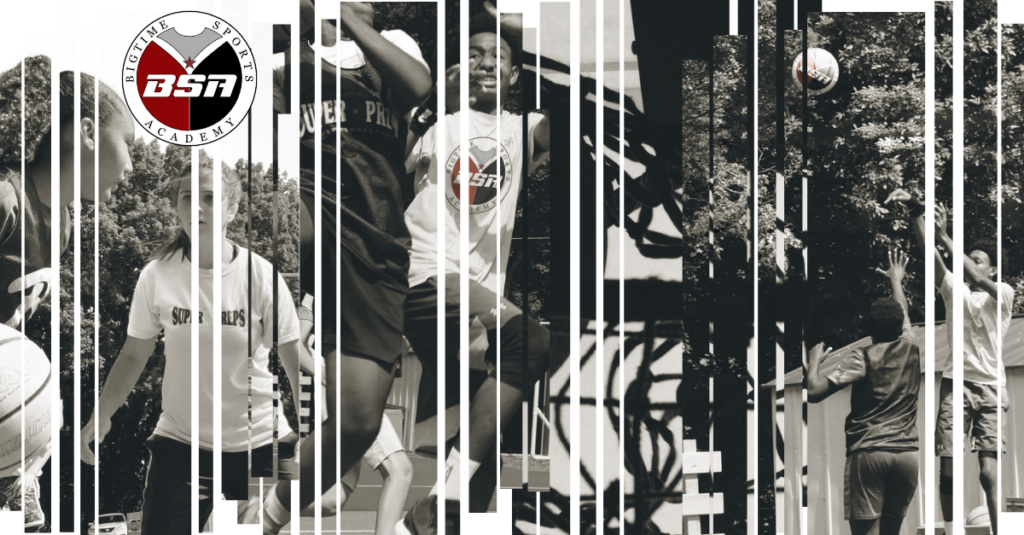Welcome to this space of reflection and action—One Deed, One Community. I’m honored to share this journey with you, and I invite you to be part of a conversation rooted in empathy, growth, and the power of community. This is a safe space where we uplift one another, recognizing that even the smallest act of kindness can ripple outward, shaping a more just and connected community. Here, we embrace the power of connection, the strength in unity, and the belief that small actions lead to lasting change. I invite you to join me in exploring what it means to invest in social equity—not as an abstract concept, but as a way of life that enriches us all. For me, social equity is about building relationships, fostering stronger communities, and contributing to a more inclusive, supportive world that benefits everyone. Social equity isn’t charity; it’s a long-term investment in people, purpose, and progress.
As one of the most influential labor activists of the 20th Century and a leader of the Chicano civil rights movement Dolores Huerta reminds us, ‘Every moment is an organizing opportunity, every person a potential activist, every minute a chance to change the world.’ Let’s embrace this mindset and take action together.

The Power of Relationships in the Community and Workplace
In reflecting on the power of community, I also recognize the profound impact of the support systems that have uplifted me during one of the most challenging moments of my life. Recently, I found myself in a situation I never imagined—having to leave my home abruptly, with just a backpack and my laptop, unsure of when I would see my children again. For 19 days, I was separated from them, navigating uncertainty and fear. Yet, in this hardship, I witnessed the unwavering support of the community, my family, and friends. Equally important, the necessary institutions worked appropriately to the benefits of my kids and their needs. People I never expected to step up did so in ways that reinforced my faith in the strength of community.
My children and I have thankfully been reunited, and at the time of this writing, we are housed by the altruism of friends. What has remained steadfast is the power of connection—the kindness and generosity of those who have helped us find stability, even in borrowed spaces. This experience has reinforced my commitment to social equity, not as a distant ideal but as a lived reality where we lean on each other in times of need.
At its core, social equity is about relationships. When we build meaningful connections in our communities, those bonds extend into our workplaces, shaping how we collaborate, lead, and grow together. I’ve witnessed this firsthand through my involvement in community initiatives, particularly in mentoring youth and coaching basketball at Bigtime Sports Academy.
Inside any organization, I approach my role much like I do coaching—by first listening, observing, and understanding the culture, mission, and the individuals who make up the team. I take the time to learn about each team member—their goals, aspirations, and what fuels their passion for the work they do. Team chemistry is the foundation for building trust and creating positive energy inside the organization, or on the basketball court. When every individual feels valued and supported, collaboration strengthens, leadership becomes more dynamic, and the organization thrives as a whole. The art and communication assets have to reflect that synergy in order to drive home the mission that supports the cause. Adapting to the culture, embracing different perspectives, and ensuring alignment with the mission allows me to contribute meaningfully, just as I encourage young athletes to bring out the best in themselves and each other.
The Humility of Volunteering and Its Impact on Work
Volunteering has a way of grounding us in what truly matters. Whether it’s mentoring young athletes, participating in social justice initiatives, or supporting nonprofits in their missions, these experiences remind us of the bigger picture. I’ve had the privilege of working with organizations dedicated to equity, climate change, and education, and I’ve seen how purpose-driven work fuels a deeper sense of connection and motivation.
Through my own experiences with volunteering, I’ve come to understand humility in a way I never expected. You see the tireless efforts of individuals who dedicate their lives to making a difference, and you gain a new appreciation for the work that often goes unnoticed. That same humility carries into professional settings. As Erica Ford, founder of LIFE Camp, one of my favorite organizations based in South Jamaica, Queens dedicated to the community and conflict intervention, says, ‘This is not a job, this is my LIFE; my undying love keeps me committed to my people until my glory day takes me away.’ Her words serve as a reminder that true commitment to community work is not just about service—it’s about a lifelong dedication to uplifting others and creating meaningful change. It helps me connect with clients on a deeper level, appreciating not just the work they do, but the passion behind it. It reminds me to approach projects with care and integrity, understanding that even small contributions can have a lasting impact.

Coaching Youth: A Blueprint for Greatness
One of my most fulfilling roles in community engagement has been coaching basketball at Bigtime Sports Academy, Youth Association of Pocono Mountain (YAPM), as well as with the middle school girls 8th grade team. But coaching isn’t just about perfecting shot form, protecting the ball, making solid passes or defensive strategies—it’s about instilling community discipline, academic excellence, teamwork, and resilience. It’s about teaching young athletes that being great extends beyond the game. It starts with mental and physical health, and the importance of self-care. But it’s deeper than that.
Many of the youth I’ve worked with face challenges beyond the court—growing up in economically strained households, where the cost of living diminishes the very concept of ‘living,’ job opportunities do not equate to alleviating the stress of the costs, and access to essential resources is scarce. In the Poconos, where tourism thrives but economic disparity persists, many families struggle with financial instability, and children often bear the emotional weight of having incredibly complex home lives. Through mentorship, I help them channel their energy into positive outlets, whether that means excelling in school, improving their character, or becoming leaders in their own right with the guidance of my mentor as a youth, Coach Wayne Jones. After every workout Coach Wayne grants the Player of the Day (PoD) to lead us all in a huddle cheer, “Somebody’s gotta be you. Why not you? 1-2-3, Bigtime!” I learn from the youth every day—their determination, their grit, and their hunger to succeed despite obstacles. That same commitment to greatness, both on and off the court, fuels my approach to work, leadership, and community building.

Why Social Equity is the Best Investment
Social equity is an investment that yields infinite returns. Through my journey, I’ve seen how investing in people strengthens our communities. When we uplift others, we create environments where growth, innovation, and collaboration thrive. My experiences with relationship-building, volunteering, and mentorship have shown me how each small effort contributes to a more just and equitable society.
For me, this isn’t just an abstract idea—it’s a way of life. It’s why I dedicate time to coaching, to helping nonprofits, not just with branding and communications, but by integrating into their team and mission and being open to their needs. My skills in art and digital strategy are just another role for their mission in order to amplify their causes and hopefully help build sustainable resources with them. Because when we invest in each other, we all rise together.
As I reflect on my journey—from moments of uncertainty to the unwavering support of my community—I am reminded that social equity is not just a concept, but a lived experience. It’s in the hands that reach out in times of crisis, in the voices that advocate for fairness, and in the collective effort to ensure no one is left behind.
I’ve always been spiritual, but not dogmatic. I only read the Bible as part of the religion minor I received in college, but one of my superstar teammates is a man of God and the role he employed during my darkest times was to send me verses by Timothy, Isaiah, and left me with Matthew Chapter 5, Verse 14:
“You are the light of the world. A town built on a hill cannot be hidden.”
We all can build, uplift, and invest in social equity – in the workplace, on the court, and in our daily relationships. It only takes one good deed as the first brick to build a positive community.


